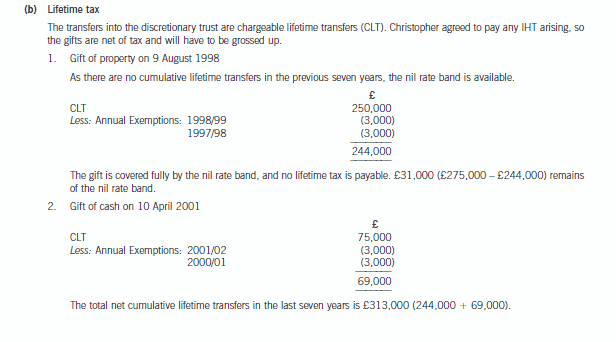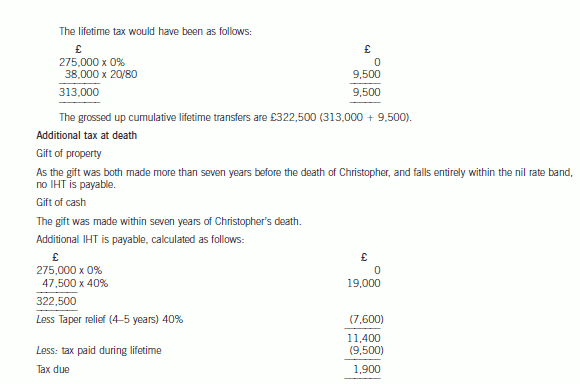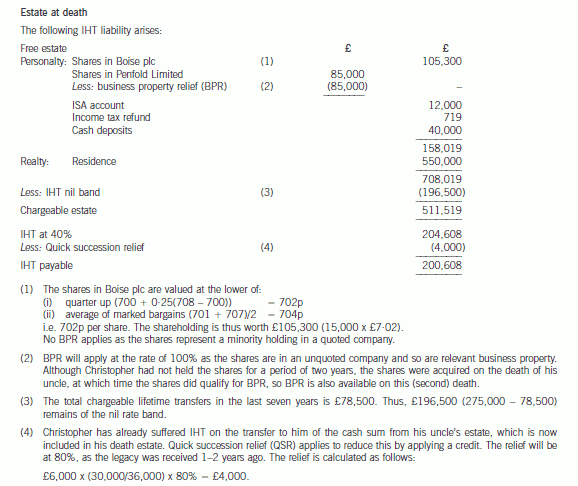ACCA报名无法缴费,缴费失败,怎么办?
发布时间:2020-02-28
随着2020年的带来,一些小伙伴准备报考ACCA考试的小伙伴也开始在网上查询ACCA考试报名的相关信息。比如,ACCA报名无法缴费,缴费失败,怎么办。鉴于此,51题库考试学习网在下面为大家带来有关2020年ACCA考试报名方法的相关情况,以供参考。
一般来说,ACCA考试报名缴费失败的原因主要是:浏览器兼容问题,小伙伴们可更换浏览器,刷新页面;网速问题,检查家里的网络设备,解决网络问题后就可正常报名;网站问题,报名期间网站访问人数较多引起服务器瘫痪,小伙伴们可另选时间进行报名。如果以上方法仍未解决问题,小伙伴们可联系ACCA官方,询问具体情况。下面是具体注册流程:
首次申请注册ACCA学员可采取网上注册以及代注册方式。网上注册需要在ACCA官网申请,并提交材料以及缴纳注册费用,所需时间最长为15天。而代注册方式,则需要申请注册报名者从ACCA代表处索取报名表(IRForm)。填写完毕后,申请人员需要将报名表连同以下材料中的部分或全部材料(视各人资历及申请免试等不同情况)一起交到代表处,由代表处汇总整理后寄往英国ACCA总部办理注册手续。注册所需时间一般是在2至4周,各地区具体时间略有差异。
所需材料:学历/学位证明(本科在校生需要提交学校出具的学生在校证明函)、身份证、英语水平证明、学历课程成绩单(加盖学校公章;本科在校生需要提交所有学年的课程考试的合格成绩单)等证件的原件、复印件和译文以及两张两寸照片、50英镑注册报名费的银行汇票。由于注册所需时间较长,因此小伙伴们在准备材料时一定要注意完整、有效。
另外,注册报名随时都可以进行,但注册时间的早晚,决定了第一次参加考试的时间。比如说,在七月三十一日前注册,有资格参加同年十二月份考试;如果是在十二月十五日前注册,则有资格参加翌年六月份考试。当然了,如果小伙伴们在准备不充分的情况下,51题库考试学习网建议大家还是尽量别急于报考
以上就是关于ACCA学员注册流程的相关情况。51题库考试学习网提醒:为避免出现缴费失败的情况,小伙伴们可选择错峰报名。最后,51题库考试学习网预祝准备参加2020年ACCA考试的小伙伴都能顺利通过。
下面小编为大家准备了 ACCA考试 的相关考题,供大家学习参考。
(b) The Superior Fitness Co (SFC), which is well established in Mayland, operates nine centres. Each of SFC’s
centres is similar in size to those of HFG. SFC also provides dietary plans and fitness programmes to its clients.
The directors of HFG have decided that they wish to benchmark the performance of HFG with that of SFC.
Required:
Discuss the problems that the directors of HFG might experience in their wish to benchmark the performance
of HFG with the performance of SFC, and recommend how such problems might be successfully addressed.
(7 marks)
(b) There are a number of potential problems which the directors of HFG need to recognise. These are as follows:
(i) There needs to exist a sufficient incentive for SFO to share their information with HFG as the success of any
benchmarking programme is dependent upon obtaining accurate information about the comparator organisation. This is
not an easy task to accomplish, as many organisations are reluctant to reveal confidential information to competitors.
The directors of HFG must be able to convince the directors of SFO that entering into a benchmarking arrangement is a
potential ‘win-win situation’.
(ii) The value of the exercise must be sufficient to justify the cost involved. Also, it is inevitable that behavioural issues will
need to be addressed in any benchmarking programme. Management should give priority to the need to communicate
the reasons for undertaking a programme of benchmarking in order to gain the full co-operation of its personnel whilst
reducing the potential level of resistance to change.
(iii) Management need to handle the ethical implications relating to the introduction of benchmarking in a sensitive manner
and should endeavour, insofar as possible, to provide reassurance to employees that their status, remuneration and
working conditions will not suffer as a consequence of the introduction of any benchmarking initiatives.
(b) Calculate the inheritance tax (IHT) liability arising as a result of Christopher’s death. (11 marks)



(c) Assess how the fundamental ethical principles of IFAC’s Code of Ethics for Professional Accountants should
be applied to the provision of a forensic investigation service. (6 marks)
(c) Application of ethical principles to a fraud investigation
IFAC’s Code of Ethics for Professional Accountants applies to all ACCA members involved in professional assignments,
including forensic investigations. There are specific considerations in the application of each of the principles in providing
such a service.
Integrity
The forensic investigator is likely to deal frequently with individuals who lack integrity, are dishonest, and attempt to conceal
the true facts from the investigator. It is imperative that the investigator recognises this, and acts with impeccable integrity
throughout the whole investigation.
Objectivity
As in an audit engagement, the investigator’s objectivity must be beyond question. The report that is the outcome of the
forensic investigation must be perceived as independent, as it forms part of the legal evidence presented at court. The
investigator must adhere to the concept that the overriding objective of court proceedings is to deal with cases fairly and justly.
Any real or perceived threats to objectivity could undermine the credibility of the evidence provided by the investigator.
This issue poses a particular problem where an audit client requests its auditors to conduct a forensic investigation. In this
situation, the audit firm would be exposed to threats to objectivity in terms of advocacy, management involvement and selfreview.
The advocacy threat arises because the audit firm may feel pressured into promoting the interests and point of view
of their client, which would breach the overriding issue of objectivity in court proceedings. Secondly, the investigators could
be perceived to be involved in management decisions regarding the implications of the fraud, especially where the investigator
acts as an expert witness. It is however the self-review threat that would be the most significant threat to objectivity. The selfreview
threat arises because the investigation is likely to involve the estimation of an amount (i.e. the loss), which could be
material to the financial statements.
For the reasons outlined above, The Code states that the firm should evaluate threats and put appropriate safeguards in place,
and if safeguards cannot reduce the threats to an acceptable level, then the firm cannot provide both the audit service and
the forensic investigation.
Professional competence and due care
Forensic investigations will involve very specialist skills, which accountants are unlikely to possess without extensive training.
Such skills would include:
– Detailed knowledge of the relevant legal framework surrounding fraud,
– An understanding of how to gather specialist evidence,
– Skills in the safe custody of evidence, including maintaining a clear ‘chain’ of evidence, and
– Strong personal skills in, for example, interview techniques, presentation of material at court, and tactful dealing with
difficult and stressful situations.
It is therefore essential that forensic work is only ever undertaken by highly skilled individuals, under the direction and
supervision of an experienced fraud investigator. Any doubt over the competence of the investigation team could severely
undermine the credibility of the evidence presented at court.
Confidentiality
Normally accountants should not disclose information without the explicit consent of their client. However, during legal
proceedings arising from a fraud investigation, the court will require the investigator to reveal information discovered during
the investigation. There is an overriding requirement for the investigator to disclose all of the information deemed necessary
by the court.
Outside of the court, the investigator must ensure faultless confidentiality, especially because much of the information they
have access to will be highly sensitive.
Professional behaviour
Fraud investigations can become a matter of public interest, and much media attention is often focused on the work of the
forensic investigator. A highly professional attitude must be displayed at all times, in order to avoid damage to the reputation
of the firm, and of the profession. Any lapse in professional behaviour could also undermine the integrity of the forensic
evidence, and of the credibility of the investigator, especially when acting in the capacity of expert witness.
During legal proceedings, the forensic investigator may be involved in discussions with both sides in the court case, and here
it is essential that a courteous and considerate attitude is presented to all parties.
声明:本文内容由互联网用户自发贡献自行上传,本网站不拥有所有权,未作人工编辑处理,也不承担相关法律责任。如果您发现有涉嫌版权的内容,欢迎发送邮件至:contact@51tk.com 进行举报,并提供相关证据,工作人员会在5个工作日内联系你,一经查实,本站将立刻删除涉嫌侵权内容。
- 2021-04-04
- 2020-01-10
- 2021-04-25
- 2020-01-09
- 2020-01-09
- 2020-01-09
- 2020-01-30
- 2020-01-03
- 2021-09-12
- 2021-01-13
- 2020-01-09
- 2021-09-12
- 2020-01-09
- 2020-01-10
- 2020-01-09
- 2020-01-08
- 2021-01-16
- 2020-01-09
- 2020-01-08
- 2020-01-10
- 2020-03-21
- 2019-12-29
- 2020-02-01
- 2020-01-09
- 2020-01-10
- 2020-01-08
- 2020-01-10
- 2020-08-13
- 2020-08-16
- 2020-01-10